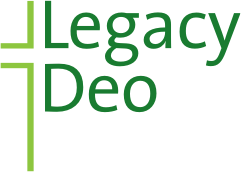
Frequently Asked Questions
Who does Legacy Deo serve?
We serve two distinct groups: 1) individuals and families and 2) Christian congregations and ministries. We educate these groups about planned giving and also serve in fiduciary roles such as trustee, executor, and custodian. This helps us achieve our core purpose which is to fund, support, and facilitate the financial viability, expansion, and sustainability of Christian ministries.
Is Legacy Deo’s service area limited exclusively to Texas?
It’s been said that Texas is like another country. That may be true, but it certainly is well-known that Texans respect “the Texas way” of doing things. You’ll find that permeates how we operate and treat people. While our service area isn’t limited to Texas, well over 98% of our accounts were funded by Texas-based donors. Most of the gifts we distribute remain right here in the Lone Star State to benefit individuals and ministries. Thanks to the generosity of our clients, some of their gifts also bless individuals and ministries in 29 other states and the District of Columbia.
What is planned giving?
Planned giving is the act of making a major gift in the present, but distributing the gift in the future. Planned gifts can be made in lifetime or upon death as part of the donor’s overall financial and/or estate plan. Donors can make gifts of cash, appreciated stock and bond investments, real estate, life insurance, mineral rights, and other assets to fulfill their charitable giving goals.
Can I also provide for my family and generate tax benefits through my planned gift?
In addition to the intangible joy of giving, some planned giving strategies can also accomplish both of these objectives. Trusts such as the Charitable Remainder Unitrust and the Charitable Lead Trust were designed for this purpose. Planned giving is a gifting mechanism that can benefit both charity and donor.
What is a trust and how does one work?
A trust is a legal instrument that is often used as part of a planned giving strategy. It consists of a donor (sometimes referred to as a grantor or trustor) who makes the gift, a beneficiary who receives the gift, and a trustee who manages the gift. Some trusts exist for a fixed length of time or to fulfill a time-based purpose. Other trusts, called endowments, can exist forever. A trust that exists to provide benefits in the present can also be structured to fund an endowment in the future.
How does Legacy Deo invest?
Legacy Deo operates five separate investment accounts having different investment objectives; two for fixed income securities, two for equities (stocks), and one for alternative investments. Each account is professionally managed by one or more independent, nationally-recognized firms specializing in these very different areas of investing. Unlike most planned giving organizations, we also allow donors to appoint an investment advisor of their choosing or utilize other investment vehicles such as the Texas District Church Extension Fund (CEF).
How does Legacy Deo differ from the Texas District Church Extension Fund (CEF)?
Legacy Deo exists to educate individuals, families, congregations, and ministries about planned giving that benefits God’s kingdom for the long-term. CEF facilitates stewardship that allows Texas congregations to acquire land and buildings used in the growth of God’s kingdom. We are two distinct organizations with distinct missions, yet we both exist to facilitate God’s work here on Earth.
